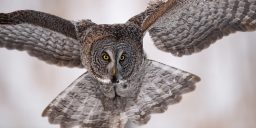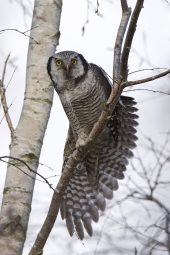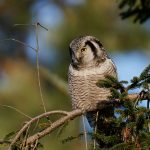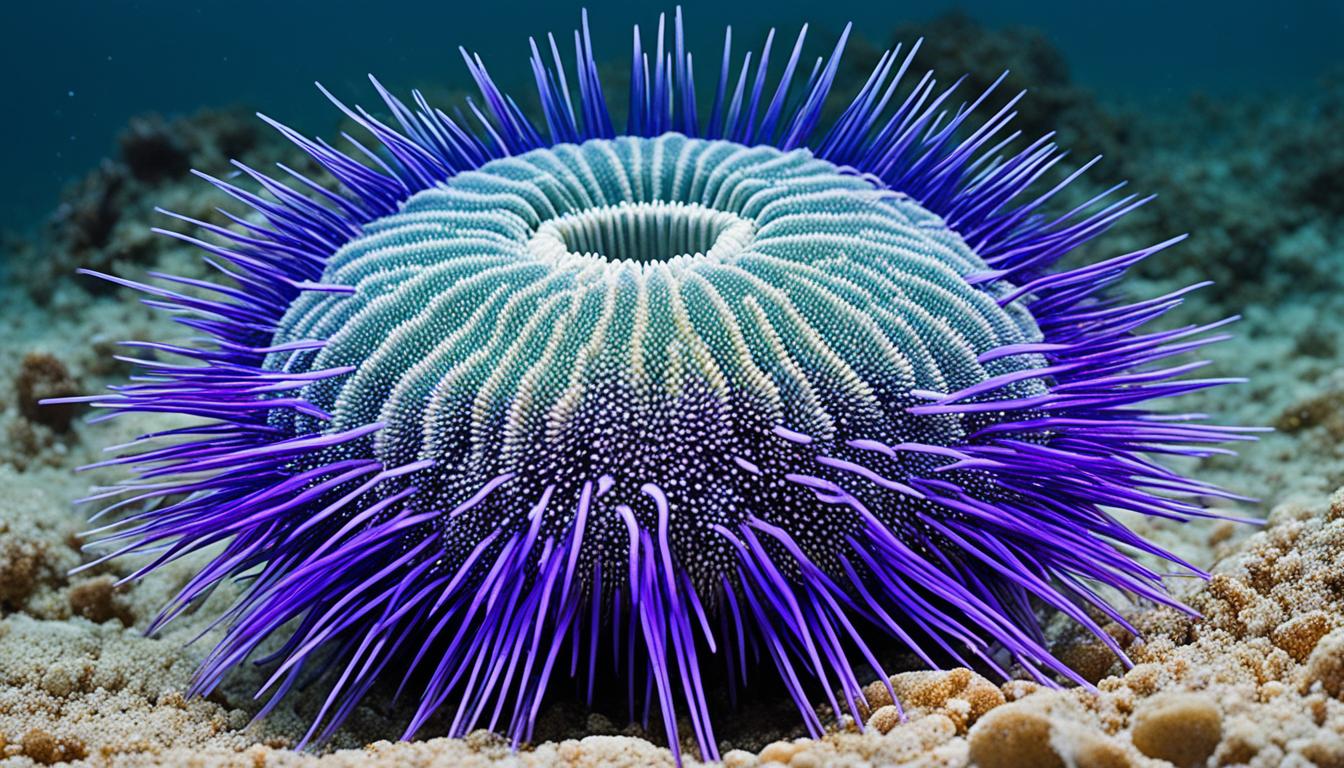Generally – owls don’t attack humans. However, where there’s overlap in habitat or extra pressures (such as when nesting) owls have been known to attack humans.

Why Do Owls Attack Humans?
In an ideal world – owls would never attack humans. They are awake at different times to us and their ideal habitat isn’t an urban one. They hunt in total silence too – so any place humans are moving around, driving, or camping isn’t where an owl wants to be.
However, sometimes one or more of these things isn’t as it should be and signals can be misread and limits of normal behavior breached. For example, a hungry owl finds itself in a town and gets confused by all the loud noises and bright lights. Easily done with any wild animal. And as we know – wild animals in the wrong place at the wrong time either run away or panic!
But the most common reason for an owl to attack a human is when the human accidentally – or on purpose – approaches an active nest.
Owls will actively attack anything or anyone who approaches their nest and who they believe to be a threat. Who can blame them? However, as owls tend to attack the head and face of a would-be attacker – these humans can really come off severely injured.
Larger owls have the same ‘bite’ with their giant talons as a large dog has with its real bite. Up to 500psi (humans can grab with their hands at only 100psi) with razor-sharp inch-long claws can cause serious skin damage. And in more than one reported case – owls have taken out a human eye.
When Do Owls Attack Humans?
Owls are typically nocturnal creatures and not known to attack humans. However, in some rare cases owls can become aggressive towards humans if they feel threatened or sense a potential threat to their offspring. This usually occurs during mating season when owls are protecting their nests from potential predators. It is also possible for an owl to attack a human if it feels the human is intruding on its territory or stealing its food source. Though such attacks are rare, it is important to remember that owls will defend themselves if they feel threatened, so it is best to stay away from them whenever possible. Additionally, never attempt to handle an owl as this could cause it to become defensive and potentially attack you in self-defense.
Why Do Owls Dive Bomb Humans?
Owls are nocturnal birds that have long been associated with wisdom and mystery. While they may appear to be gentle creatures, they can become quite aggressive when threatened or disturbed. One way in which owls show aggression is by dive-bombing humans. This behavior is usually seen during breeding season as the owl attempts to protect its young or territory. It is also observed when an owl perceives a human as a threat and is attempting to ward them off with its intimidating display of power. Although it can be frightening to experience an owl’s dive bomb attack, it’s important to remember that this behavior is only a defensive response and not a malicious one.
Are Owls Known to Attack Humans?
Owls are typically not known to attack humans; however, there have been some rare reports of owls attacking humans. In most cases, the owls are trying to protect their nests and young or they may be ill or injured. When an owl does attack a human, it usually does not cause serious injury, though it can be quite frightening for the person being attacked. Generally, the best way to avoid being attacked by an owl is to stay away from nesting sites and give any owl you might encounter a wide berth. If you do happen to find yourself in an altercation with an owl, try to remain calm and slowly back away until you are out of range of its talons.
Will an Owl Attack Me at Night?
No, an owl will not attack you at night. Owls are generally nocturnal animals, so they are more active in the dark. However, they rarely attack humans and do not see them as prey. Owls may swoop down to investigate a potential threat or if they feel threatened but will usually fly away if the person does not move or back off. An owl may also defend its nest or young if it feels threatened, but this is usually only done as a last resort when there is no other option. In any case, an owl attacking a human is a rare occurrence and it is not something most people need to worry about at night.
Has Anyone Ever Been Attacked By An Owl?
Yes, people have been attacked by owls and in the video below you can hear some people from Atlanta describe how they felt after and during the attacks.
How Do You Stop an Owl From Attacking You?
If you find yourself face-to-face with an owl that is attacking you, it is important to remain calm and avoid making sudden movements or loud noises. You can try to back away slowly while avoiding eye contact. A defensive posture such as raising your arms or a blanket over your head may help to make the owl feel less threatened.
If possible, use a stick or object to create distance between you and the owl and try to move away from the area. If the owl does not immediately fly away, it might be best to call animal control and allow them to handle the situation safely. If there are small children or pets nearby, it is recommended that you get them away from the area as soon as possible for their safety. You can also use bright colors such as red or flashing lights to scare away or discourage the owl from attacking you.
Do Owls Feet Get Tangled In Hair?

It is possible that if an owl attacked someone around the head – and they had long hair that was perhaps part-tied back – they could temporarily get their feet caught in the hair. It would have to be a really unfortunate series of events to come to that in the first place – but not impossible.
Generally, an owl would fly at a human so fast and snatch those feet at the head – before flying straight back off. Like a precision fly-by. They don’t fly at you to grab you and flail around still attached. It is a quick in-out action to ward you off – not carry you off. And as owl attacks happen so infrequently, this really is just a scare story.
Another (again – very rare) reason for these stories to come up would be if the owl wasn’t attacking you – but thinking you were a friend. A lot of owls are hand-reared by humans and then released – as a result, they don’t always then see humans as a threat. Sometimes they see them as ‘safe’ – or a place to get a great meal.
So, if a once-tame owl was flying at you – it might want to land on your shoulder or arm – in which case it may well seem as though it is ‘caught in your hair’. However, it has actually just sat down on you and has no intention of leaving – even if you start flailing your hair around.
Can Owls Carry Rabies?
No Owls can’t have rabies.
Rabies is a terrible viral disease that kills around 60,000 people each year – but is only passed to humans from mammals.
Birds, ergo owls, don’t carry it and so can’t pass it on to humans. Therefore, unless you accidentally disturbed a Great Horned Owl eating a rabid dog and got close to the dead dog itself – you are not going to catch rabies from an owl.
Even if an owl scratches or bites you – there should be almost 0% chance of you catching rabies from them. You could however get other dirt or disease into an open wound – so always rinse and clean the wound well in all instances.
Would An Owl Carry Off A Child?
Biologically, it is believed that most owls can’t lift anything that weighs more than themselves. Some animals can lift weights many, many, many times greater than themselves (like Rhinoceros beetles and leafcutter ants) – but not so owls.
The largest owls in the world only weigh around 6.5 lbs – lighter than the average newborn – so the smaller owls in the U.S most likely wouldn’t even get off the ground with a child.
However, the Great Horned Owl is a different matter. They are believed to be able to carry off heavier items if they are hungry – and these owls really do eat anything. Although they only weigh around 3.5 lbs themselves – they have been known to carry off cats and dogs up to 20 lbs in weight! They often feed on prey ranging from voles to jackrabbits and from snakes to skunks – so cats and small dogs aren’t viewed any differently. Unfortunately.
Are Barn Owls Dangerous?
Barn owls are not particularly dangerous, but they can be territorial and aggressive when defending their nesting territory. They are also curious birds, so if you encounter one in the wild, be sure to give it plenty of space.
Are Barred Owls Dangerous?
There is some debate over whether barred owls are dangerous, but the vast majority of experts say that they are not. Barred owls are not known to attack humans, and in fact, are quite timid creatures that typically avoid humans and other animals. If you encounter a barred owl in the wild, be cautious but don’t worry – they are generally non-aggressive.
Are Screech Owls Dangerous?
Some people believe that screech owls are dangerous because of their size and hunting techniques. However, most experts believe that screech owls are not dangerous to humans.
Are Great Horned Owls Dangerous?
No, they are not. Great Horned Owls are not typically considered dangerous animals, but that doesn’t mean they can’t cause you harm.
Are Owls Dangerous to Dogs?
Owls are generally not considered to be dangerous to dogs. While owls may try to protect their nests or young, they are unlikely to attack a dog unless it is provoked. Owls typically avoid confrontation and will simply fly away if they feel threatened. If an owl does attack a dog, it is usually because the dog has gotten too close to its nesting area or has disturbed its young.
In such cases, the owl will likely use its talons to defend itself and its young. It is important for pet owners to be aware of the presence of owls in their area and keep their dogs away from any owl nests that may be nearby. If an owl does come into contact with a dog, it is recommended that the pet owner calmly remove the animal from the situation as soon as possible.
Read more on Owls attacking cats and dogs in our article.










